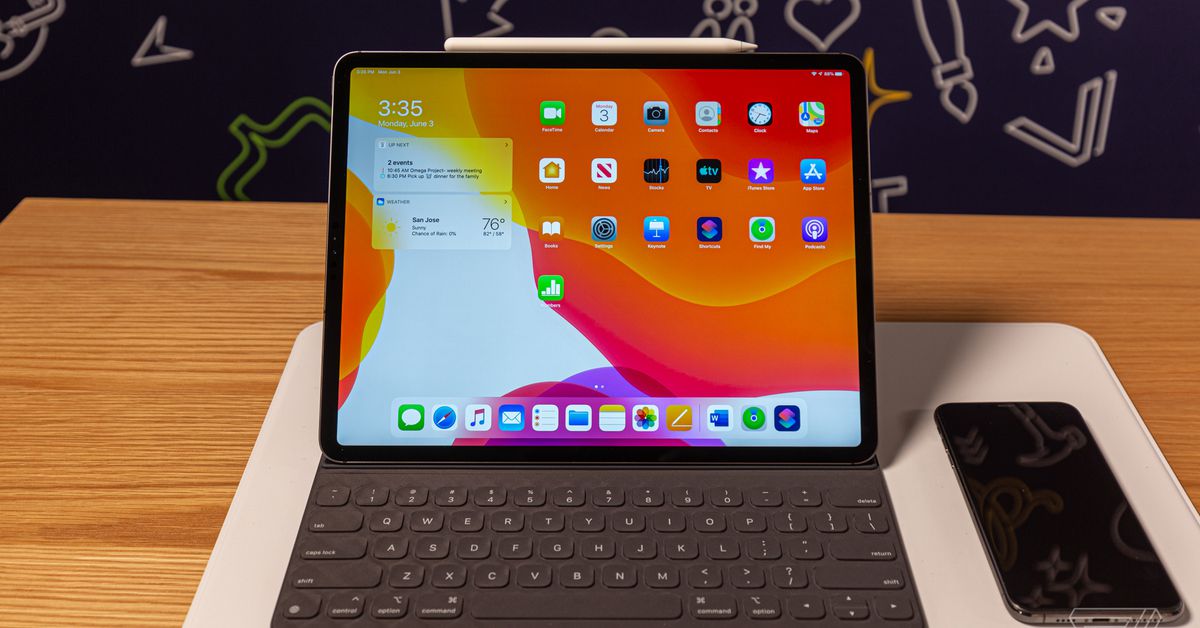
I had some brief time actually using an iPad Pro running iPadOS yesterday, and one of the first things I did was open up a Safari tab Apple had waiting for me: a Google Doc. Google Docs has long been a huge problem on the iPad, for two reasons. First, Google’s own iPad app is god-awful and the company seems hell-bent on not updating it to work better. Second, Google Docs in Safari on the iPad right now redirects you to that app even if you “Request Desktop Site.”
On iPadOS, however, Google Docs in Safari seems great.
Admittedly, I only spent about five minutes poking around, but I went straight for the stuff I didn’t expect to work at all — and it worked. Keyboard shortcuts for formatting and header styling, comments, cursor placement, and even watching real-time edits from another person in the doc all worked.
Since native apps generally work better than web apps on the iPad, I would still probably prefer Google fix its app. Still, this is leaps and bounds better than any Google Docs experience on the iPad before and will be a huge boon for anybody who depends on it for their work.
As for how Apple pulled this off, I have a few answers and a lot of questions.
Answers first: Apple is setting the “user agent” (the thing browsers use to tell websites what they are) to the desktop version of Safari. That means websites won’t default to serving their mobile versions because they see an iOS-based browser. After that, though, Apple is optimizing that site to work with touch (and the iPad’s keyboard). So it was pretty easy to hit all of Google Docs’ menu buttons, and keyboard shortcuts were no problem.
Now, questions: to optimize these sites for touch, Apple says it is doing some re-rendering of the website on the fly to ensure they work on the iPad’s screen. I don’t know whether the touch optimization is part of that or if it’s another layer on top. It probably doesn’t matter unless one of the answers there means a speed hit on slower or older iPads.
The biggest question, of course, is whether Safari on iPadOS is actually “desktop class” in the way that Chrome OS or Safari on the Mac are. Is Apple just taking what is still at bottom its supercharged mobile browser and making sure it is optimized for commonly used desktop sites? Is it actually something like the full desktop Safari codebase on the iPad?
I tend to think it’s the former, but that doesn’t necessarily mean it’s a problem. We will have to wait until the official release to find out just how “desktop class” this version of Safari really is.
The bottom line is that it seems like Apple has heard a lot of the specific complaints about iOS on the iPad over the past year (USB drives, web apps, limited text editing) and taken steps to fix those exact problems. That whack-a-bug approach might not be what people really asked for, but it’s certainly possible that the end result will be the same: it’s going to be harder to argue that the iPad isn’t a “real” computer.
https://www.theverge.com/2019/6/4/18652163/google-docs-ipad-ipados-safari-apple-wwdc-2019
2019-06-04 15:53:55Z
52780307176121
Tidak ada komentar:
Posting Komentar